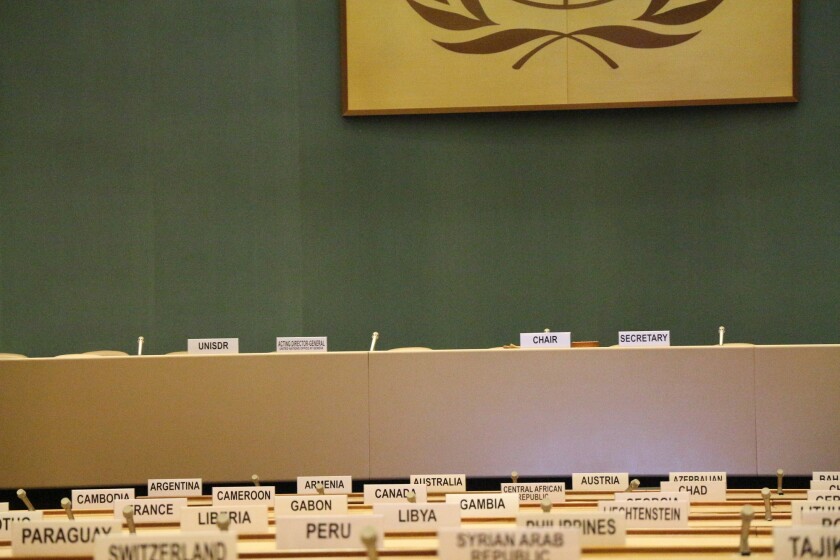The UN General Assembly agreed a resolution on Wednesday, November 23, that could kickstart a shift in the balance of power in global taxation away from the OECD.
The resolution opens the way for a UN tax convention and for the establishment of new international tax institutions. It sets up a potential clash between the UN and the OECD, which has dominated the global tax landscape for 60 years.
Alex Cobham, chief executive at the Tax Justice Network (TJN), welcomed the news as history in the making. He also criticised the role of the OECD in global reform.
“The OECD has been unprecedentedly aggressive in its lobbying but could hardly have failed more completely as the resolution passed by unanimous consensus,” said Cobham.
The measure also enables the UN to monitor, evaluate and decide global tax rules, according to TJN.
It was proposed by the African Group, which represents the 54-member state African Union.
UK collected £358m in DST revenue, says report
HM Revenue and Customs received £358 million ($432 million) in digital services tax receipts for the year 2020-21 – 30% more than the UK tax authority had expected – according to a National Audit Office investigation published on Wednesday, November 23.
The NAO investigation showed that 90% of DST revenues came from only five business groups, while just 18 companies in total paid the tax due to its scope and design.
Multinationals have also showed little initiative to lower their DST liability. Fourteen out of the 18 groups paid more tax than expected under the UK regime. As a result, HMRC collected more revenue than it projected.
The UK government introduced the DST in 2020 to ensure that multinational groups – mostly US technology companies – pay their fair share of tax. However, the measure is expected to be replaced by the OECD’s pillar one in 2024.
Automakers want US tax concessions on Chinese materials
Car companies including Ford and Volkswagen reportedly asked US regulators to revise tax credits for electric vehicle production on Tuesday, November 22, requesting that the credits limit the use of China-sourced components.
President Joe Biden approved the hard-won Inflation Reduction Act in August after months of wrangling in Congress. The legislation includes a category on foreign entity of concern for any company doing business in blacklisted countries such as China, Russia, Iran and North Korea.
As a result, companies like Ford could be denied tax credits for producing EV batteries with components sourced in China. The Michigan-based car company is lobbying for a threshold to allow a certain amount of Chinese-sourced materials in EV batteries.
German automaker Volkswagen wants the US to adopt a threshold of 10% or less for Chinese-sourced materials. This would allow such EV manufacturers greater flexibility at a time when supply chains are under strain.
CJEU rules against public beneficial ownership
The Court of Justice of the EU ruled on Tuesday, November 22, that public beneficial ownership registers are incompatible with the EU Charter of Fundamental Rights.
All EU member states were required to open beneficial ownership registers to the public after the Fifth Anti-Money Laundering Directive came into force in 2018. This applied to corporations, trusts and other legal entities.
However, the CJEU found that these measures breach Articles 7 and 8 of the CFR – which concern the right to privacy and data protection.
The court also found that the gathering of such data is sufficient for cracking down on money laundering and terrorist financing. But the court deemed it unnecessary to make such data open to the public.
As a result of the ruling, EU governments in countries such as Luxembourg and the Netherlands are now blocking access to their beneficial ownership registers. This is seen as a step backwards by transparency campaigners.
Next week in ITR
ITR will take an in-depth look at the UN’s decision to take a greater role in tax matters and what this means for taxpayers and the future of global tax reform. The OECD may be about to lose its dominant position in international tax policy.
Meanwhile, ITR will speak to tax leaders about how some tax authorities are creating confusion for multinationals by applying inconsistent TP principles on different transactions. Tax authorities are too often making abrupt and arbitrary decisions when it comes to TP standards, especially if the first decision doesn’t yield the desired result.
Readers can expect these stories and plenty more next week. Don’t miss out on the key developments. Sign up for a free trial to ITR.













